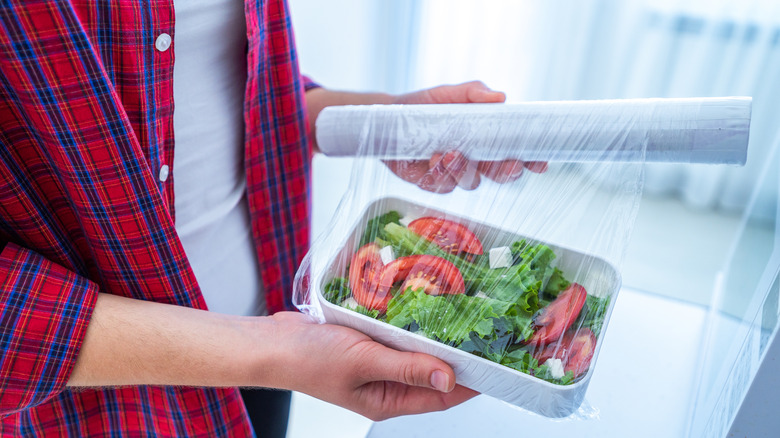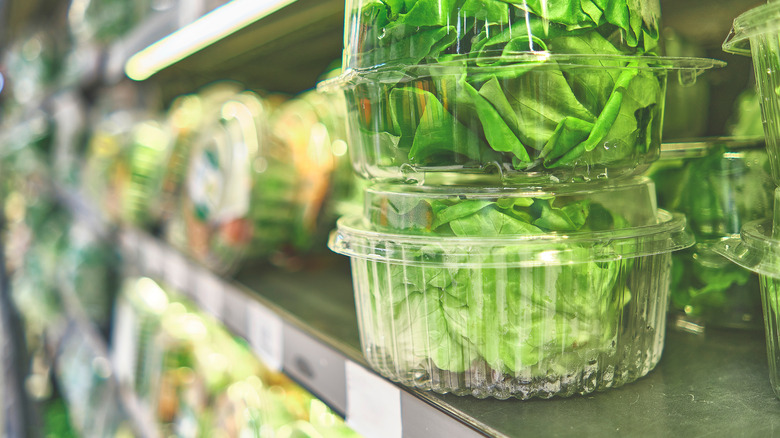How Long Is Salad Still Safe To Eat?
A little arugula, spinach, or kale can be the foundations for a great salad. Per the Cleveland Clinic, throw in some tomatoes, cucumbers, or celery to get a helping of vitamins, and add on some protein, chia seeds, or lentils to pack in some fiber — and voila! You have the makings of a delicious, hearty salad.
After enjoying your meal, if you find you have some unfinished salad, is it safe to keep as leftovers for the next day? If so, just how long will salad remain good for? When it comes to the shelf-life of a salad, the answer will vary depending on a number of factors such as the type of lettuce, packaging, how it's stored, the added ingredients, and whether or not it was topped off with salad dressing. Even salad that's remained sealed and packaged from the grocery store will eventually expire. So when should we toss out salad that's been prepared versus bagged salad that's been unopened?
How to properly store salad
According to the U.S. Food and Drug Administration (FDA), "The sensory quality of fresh and bagged, fresh-cut leafy greens lasts at least a week after the "sell by" or "use by" date and often much longer." However, to err on the side of caution, experts at WebMD suggest finishing bagged leafy greens within five days. If you've opened the bag, you'll want to toss it out after two days.
When it comes to proper storage, salads require refrigeration at a temperature of 40 degrees Fahrenheit or below, according to the U.S. Centers for Disease Control and Prevention (CDC). Additionally, salad left sitting out in the open needs to be refrigerated within two hours for it to be considered safe for eating. Conversely, a salad that's been left baking in the sun at a family picnic on a 90-degree summer day will require refrigeration within one hour.
Even with proper storage, keep an eye on your salad ingredients. Lettuce that has begun to wilt, smell, or develop a slimy coating is no longer safe to eat (via Livestrong). Keeping salad that's been doused in dressing can also reduce a salad's shelf-life, per Well + Good. Stick to salad ingredients like kale, which is known to keep better than arugula or baby spinach (via All Recipes). Lastly, store your fruit and veggie add-ins safely in the crisper to reduce spoiling.


